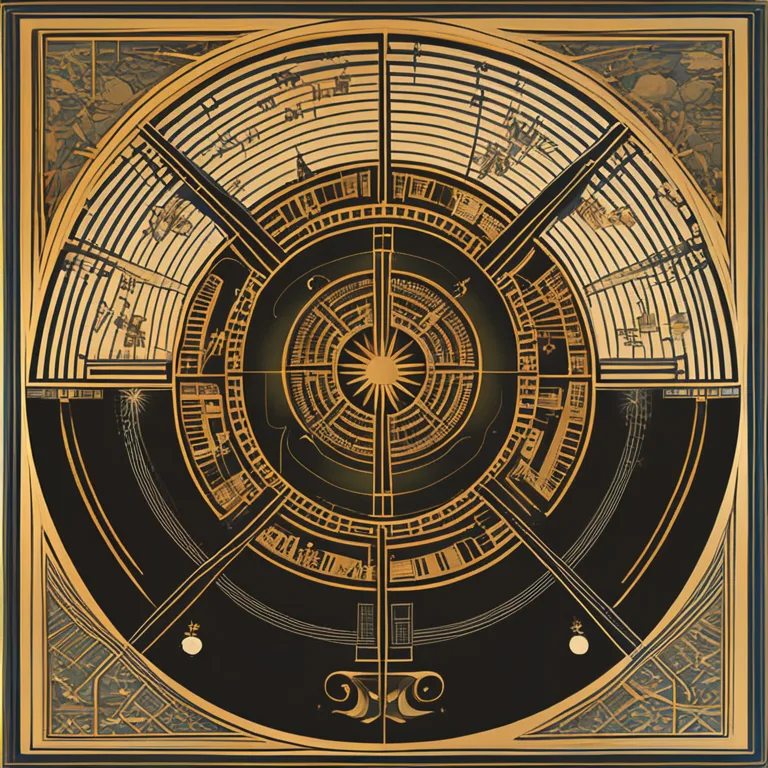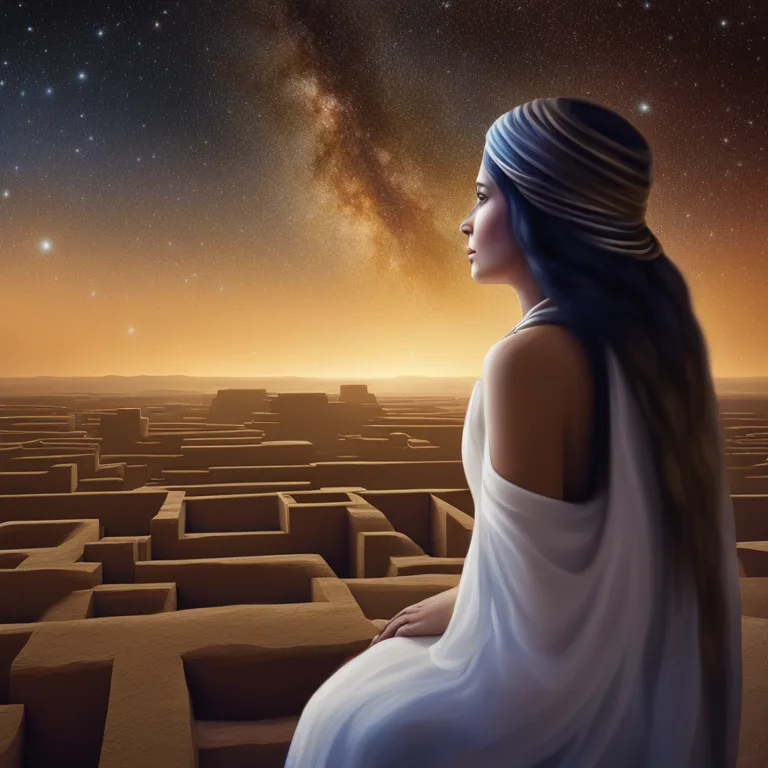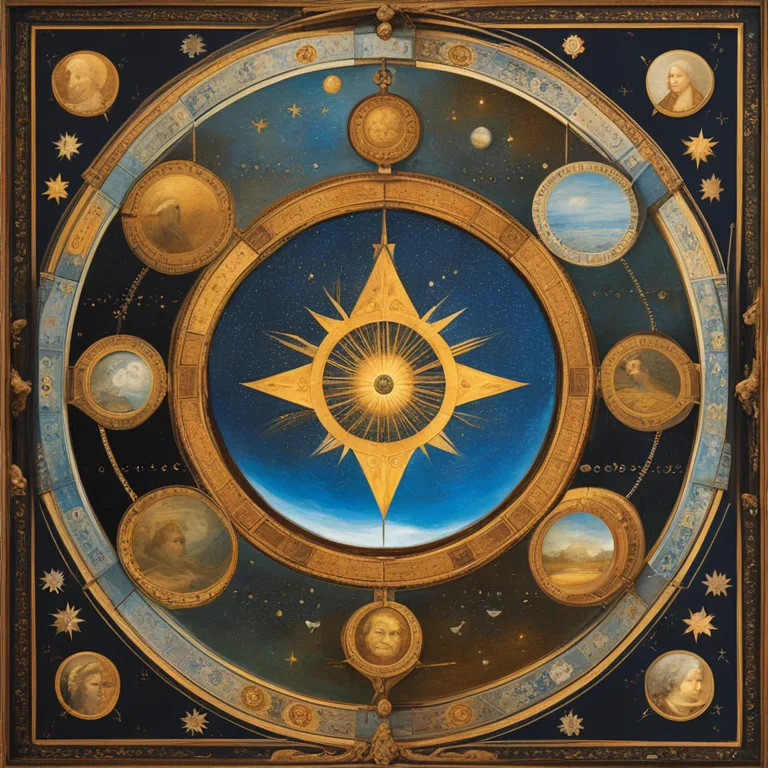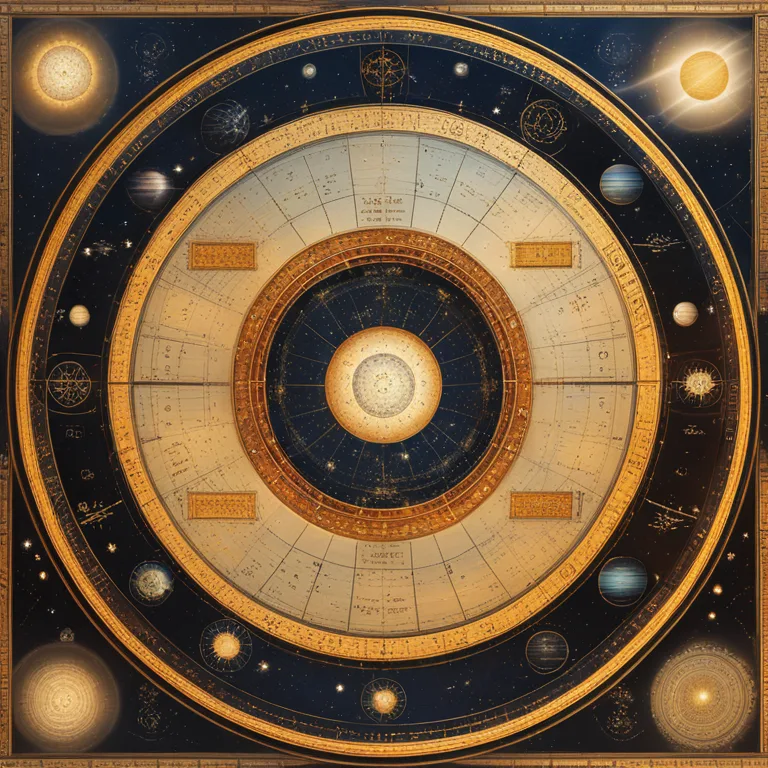
The Origins of Astrology Explained
Delve into the ancient beginnings of astrology and its evolution into the cosmic art we recognize today.
article by Priya Deshmukh
Astral Beginnings
Long before astrology became a daily guide for many, it was an ancient discipline intertwining astronomical observations with human existence. Its origins are as vast as the night sky, tracing back to the dawn of civilizations when sky watchers first connected celestial patterns with earthly events. The roots of astrology are found in the third millennium BCE, particularly within the Babylonian (Chaldean) empire. Renowned for their advanced astronomical knowledge, the Babylonians are often credited with astrology's creation, developing a system that would evolve and spread across cultures and epochs.

Cultural Crossroads
As astrology transcended Babylonian society, it became integral to other ancient cultures. The Egyptians furthered astronomical observations by charting stars and aligning pyramids with celestial bodies. Meanwhile, Greek philosophers like Ptolemy provided framework in the 2nd century CE through his work, the 'Tetrabiblos,' which remained a cornerstone in astrological education for centuries. These interactions illustrate a fascinating exchange of knowledge, culminating in a universal language that sought to understand human life through stars.

Zodiacal Zone
The Zodiac, a major component of astrology, reflects the influence of Hellenistic culture and encompasses a belt of the heavens within eight degrees either side of the ecliptic. Astrologers partitioned this belt into twelve equal parts, each named after the constellation that once occupied its sector. Over time, these divisions became the basis for personality traits and prognostications that remain popular in contemporary readings tailored for the times beyond 2024.

Revival and Renaissance
After experiencing fluctuations in popularity, astrology resurfaced with vigor during the Renaissance, aligning with humanism and the arts. Notable figures such as Nostradamus and Tycho Brahe studied celestial events, providing insights to royal patrons. Throughout these periods, astrologers were often dual experts, skilled in both astrology and the emerging field of astronomy. The Renaissance rekindled a wider appreciation for astrology, setting the stage for its modern incarnation.

Astrology in the Contemporary Context
In the 21st century, astrology continues to thrive, adapting to contemporary needs and technology. Online platforms now offer personalized horoscopes based on precise algorithms, aligning celestial events with individual birth charts. This evolution allows modern astrologers to provide guidance and predictions beyond 2024, resonating with a new generation searching for meaning in the cosmos. The symbiotic relationship between humans and the heavens remains as compelling as ever.
A Diverse Discipline
Astrology's journey through ages illustrates its resilience and adaptability. Once a tool for survival, predicting weather patterns or natural disasters, it now provides personal insight and foresight. In every era, astrology has encapsulated the zeitgeist, morphing to reflect the values and knowledge of the times. As we look forward to astrological forecasts for 2024 and beyond, its rich history continues to inform its principles and practice.
Published: 12/29/2023
Modified: 1/3/2024
More predictions
Come back here soon to learn more about yourself and your future


Astrological Sign Compatibility: Love among the Stars
Discover the dynamics of love and friendship through the lens of astrological sign compatibility. Find out which zodiac pairs harmonize and those that challenge one another.


The Significance of Your Moon Sign in Astrology
Discover how your Moon Sign influences your emotions, instincts, and inner self in the realm of astrology.